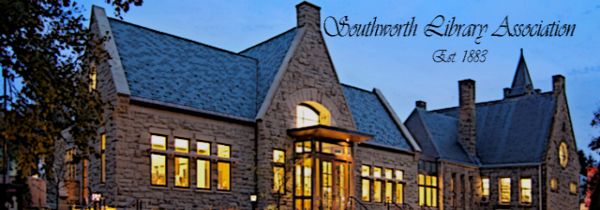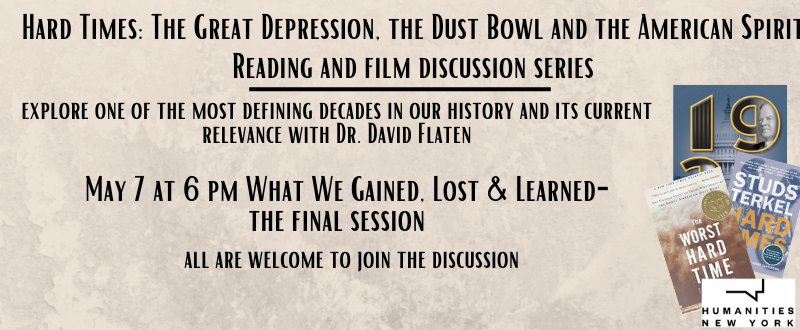Hard Times: A Monthly Adult Reading & Discussion History Series at the library
Hard Times: The Great Depression, The Dust Bowl and the American Spirit. Explore one of the most defining decades in our history and its current relevance with Dr. David Flaten, on the first Tuesday of the month at 6 pm. Register here to reserve your copies of the texts for the series. Attendance at all the programs is not required.
Examining our place in history in the rear view informs the present daily experience and no time provides that lens better than the Great Depression in the United States. Though the 1930’s were defined by financial hardship, devastation of farms in the midwest through the dust bowl and the breakdown of family ideals, the strength and kindness of humankind also prevailed. Using books, film excerpts, local history and materials, and personal reflections, we will look at the impact of these times on the country and in our local area, and look at the long lasting ramifications.
The content is separated into four sections looking at the Great Depression, the Dust Bowl, FDR and the New Deal and how it has impacted generations.
- February 6: The Bottom Falls Out- Intro and selections from Hard Times by Studs Terkel
- March 5: 1932 & The New Deal- selections
- April 2: The Dust Bowl: Selections from The Worst Hard Time by Egan and film excerpts from the Ken Burn documentary The Dust Bowl
- May 7: What We Gained, Lost & Learned- Stories of endurance and strength from Terkel, Egan, Ted Gup, local history and other writings
Copies of the texts used are available at the library for registered participants
- Studs Terkel: Hard Times: An Oral History of the Great Depression
- Timothy Egan: The Worst Hard Time: The Untold Story of Those Who Survived the Great American Dust Bowl
- Scott Martelle: 1932: FDR, Hoover and the Dawn of a New America
This program is made possible through a generous grant from Humanities New York.
The mission of Humanities New York is to strengthen civil society and the bonds of community, using the humanities to foster engaged inquiry and dialogue around social and cultural concerns.

